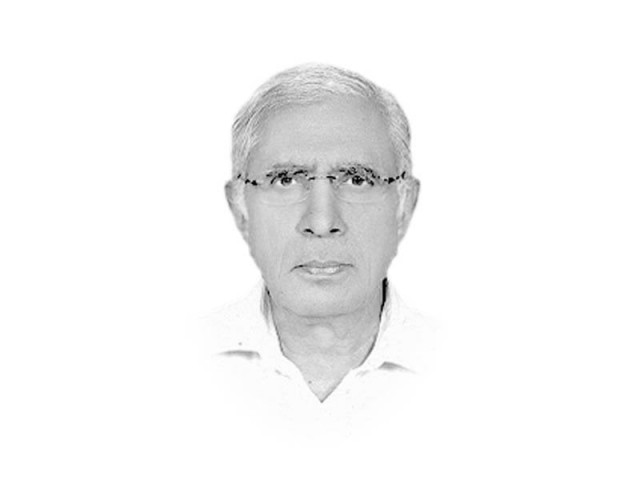Advice for young Muslims
This highly enlightening essay is worth a careful and thorough reading

The writer served as executive editor of The Express Tribune from 2009 to 2014
Earlier this year a well-informed and analytical essay on the subject ‘Advice for Young Muslims — How to Survive in an Age of Extremism and Islamophobia’ by Omar Saif Ghobash, UAE’s ambassador to France, appeared in the Foreign Affairs magazine (January/February 2017) in the form of letters to his son. This highly enlightening essay is worth a careful and thorough reading.
What follows, however, is just a quick snapshot of the more than 3,000-word-long essay which though certainly does not do justice to the scholarly work still provides enough food for thought. The author’s intention in writing these letters to his son, he claims, was to open his son’s eyes to some of the questions he is likely to face as he grows up and to a range of possible answers.
“I want my sons and their generation of Muslims to understand how to be faithful to Islam and its deepest values while charting a course through a complex world. I want them to understand that even in matters of religion there are many choices that we must make. I want my sons’ generation of Muslims to realise that they have the right—and the obligation—to think about and to decide what is Islamic and what is peripheral to the faith.”
Although he loathes what the terrorists do, the author realises that according to the minimal entry requirements for Islam, they are Muslims. What worries him, however, is that as the extremists’ ideas have spread, the circle of Muslims clinging to other conceptions of Islam has begun to shrink. And as it has shrunk, it has become quieter and quieter, until only the extremists seem to speak and act in the name of Islam.
He says that another reading of Islam is possible and necessary. “And we need to act in ways that make clear how we understand Islam and its operation in our lives.
“Today, some of our fellow Muslims demand that we accept only ideas that are Muslim in origin. Meanwhile, we must reject foreign ideas such as democracy, they maintain. Some extremists are even willing to kill in defense of that position.”
But do such people even know what democracy is? I don’t think so, says the author. In fact, from reading many of their statements, it is clear that they have little understanding of how people can come together to make communal decisions. The government that he says he represents is a monarchy, “but I feel no need to condemn proponents of democratic reform as heretics. I might not always agree with them, but their ideas are not necessarily un-Islamic.”
Another ‘foreign’ practice that causes a great deal of concern to Muslims is the mixing of the sexes. “There is nothing written in stone that places Muslim women [are] below Muslim men. Islam calls on women to be modest in their appearance, but veiling is actually a pre-Islamic tradition.”
“Islam Is the Solution,” is a brilliant slogan, he says. Lots of people believe in it. “The slogan is a shorthand for the argument that all the most glorious achievements in Islamic history — the conquests, the empires, the knowledge production, the wealth — occurred under some system of religious rule.
“Therefore, if we want to revive this past glory in the modern era, we must re-impose such a system. But the only way we can improve the lot of the Muslim world is to educate ourselves and work hard and engage with life’s difficult questions rather than retreat into religious obscurantism.
“In the seventh century the concept of Ummah made sense. But today this concept has allowed self-appointed religious authorities to speak in the name of all Muslims without ever asking the rest of us what we think. Again this concept makes it easier for extremists to depict Islam—and all of the world’s Muslims — as standing in opposition to any number of other things.”
.Published in The Express Tribune, December 30th, 2017.
Like Opinion & Editorial on Facebook, follow @ETOpEd on Twitter to receive all updates on all our daily pieces.













COMMENTS
Comments are moderated and generally will be posted if they are on-topic and not abusive.
For more information, please see our Comments FAQ